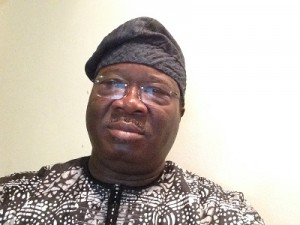
Engr. Emmanuel Ilori is the National Publicity Secretary of the Nigerian Indigenous Shipowners Association (NISA). He is a maritime expert and consultant. When MMS Plus correspondent ran into him in a recent maritime summit, we squeezed out this interview. Engr. Ilori discussed the headway for the Nigerian maritime industry, and posits some solutions to teething problems such as increased pricacy, absence from IMO Council, etc.
Excerpts:

What are the objectives of this Maritime Technical Summit?
The objective of this summit is to ensure the government’s commitment to reposition the maritime industry on a solid foundation in preparation for growth of the sector and the nation’s economy at large.

We have the Minister of Transportation, Hon Rotimi Amaechi and several past governors and maritime veterans in this summit. What do you want them to take home?

We want them to fully understand that this is an industry that is comatose, one that needs serious government attention. Everyone agrees that the maritime industry is capable of transforming the nation’s economy. At this point in time, the maritime industry is weak, thus it is not enable to contribute significantly to the economy as it has the potentials to.
So, in your opinion what are the major issues that need to be addressed?
The industry needs a complete overhaul because at the moment it is not standing on the right foundation because we have neglected the technical aspects of this industry and the Minister confirmed this. It means that the Minister is learning and at the end of the day we are planning to reposition the industry. I believe that after this summit, if the government does the right thing then we will get it right.
The Minister of Transportation, Hon. Rotimi Amaechi faulted the performance of the MAN Oron Academy, what is your opinion on this?
The Minister is asking fundamental questions and these are the fundamental questions that we all have to address. It is not about sentiments. MAN Oron has not performed as expected. 35 years after the Academy was established, we still don’t have the ability to issue globally acceptable certificates. We are sending people to institution that were established several years after MAN Oron. This is an indication that something is wrong and we cannot run away from that. There are fundamental issues with MAN Oron that need to be addressed.
You delivered a paper on the role of regulation, compliance and verification. Please do a summary of the paper.
I came with the paper from the Regulation, Verification and Compliance and that is the foundation of running any effective shipping industry. Without compliance to those regulations which are technical regulations and not legal regulations, they affect the ship building and operations of vessels. Therefore we can’t have quality vessels except they comply with those requirements.
Once we have compliance, the ship owner can compete favourably with any ship owner in the world; apart from the financial issues that also needs to be addressed.
NIMASA isn’t a member of the Association of Maritime Administrators in Africa, Nigeria is also absent from the International Maritime Organization (IMO) Council. What are the implications and how do these shortcomings affect the nation?
Nigeria’s absence from the IMO Council is a national issue that needs to be addressed. IMO deals specifically with technical resolutions affecting the maritime industry and this is one of the issues that we are highlighting. We need to ensure that Nigeria has the technical capacity to respond to the challenges of the maritime industry which is why the IMO is there.
If we respond to the technical challenges affecting our maritime industry and if it is of a global nature, we will be able to speak at the IMO to explain how these technical challenges affecting the industry can be resolved. Consequently, Nigeria will be respected for that and we begin to be on par with other maritime nations.
Sea piracy in Nigeria continues to increase and there is the issue of colossal war risk charges which are set to aggravate with the rise in pirates attacks. How do we curb this anomaly?
The War Risk happens when there is an accelerated concern about the safety of operations or the safety of ships in a particular area. At the moment there are concerns about the safety of vessels and operations along the Gulf of Guinea, so these issues need to be addressed soonest.
These are some of the things we need to discuss with the government. We cannot deal with this issue by ourselves. We need to put in place what is called ‘best management practice’ for checkmating the maritime risk in the Gulf of Guinea.
The actions that were taken by the global community in the Gulf of Eden which was a big problem in the past would have to be replicated here in Nigeria. This means we need to cooperate with the relevant stakeholders. It is not just calling a bunch of security operatives together. It is a maritime issue that requires a maritime solution, so we need to involve those who understand the business of shipping, the technical aspects of shipping and those who understand what it takes to take avoidance actions. These are the people that should team up to address the issue. We must have a holistic approach to solving the problem.
By Kenneth Jukpor
 MMS PLUS NG – Maritime, Aviation, Business, Oil and Gas News Online Newspaper with coverage in Maritime, Oil and Gas, Aviation, Power and Energy as well as Financial News
MMS PLUS NG – Maritime, Aviation, Business, Oil and Gas News Online Newspaper with coverage in Maritime, Oil and Gas, Aviation, Power and Energy as well as Financial News









